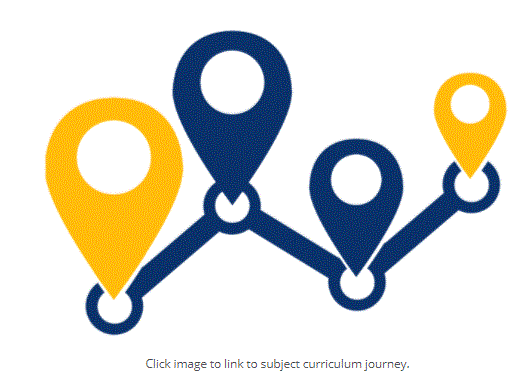Intent
The purpose of RE is to enable each child and young person to gain knowledge and understanding of Christianity, other religions and worldviews. We provide thought provoking and challenging questions about the meaning and purpose of life, beliefs about God, issues of right and wrong and what it means to be a human. In preparing for adult life, we believe students need to learn to respond well to local, national issues and a landscape of religion and belief diversity. In the context of today’s world, we are advocating that RE should help children and young people to hold balanced and well-informed conversations about religion and belief, i.e. being religiously literate.
Our curriculum is designed to reflect the core Christian values promoted by our school prayer.
Our school prayer:
“What does the Lord ask of you?
To act justly,
to love mercy,
and to walk humbly
with your God.”
Micah 6 vs 8
Implementation
Our whole curriculum is shaped by our school vision, which aims to enable all children, regardless of background, ability, additional needs, to flourish to become the very best version of themselves they can possibly be. ‘Religious education in a Church school should enable every child to flourish and to live life in all its fullness. (John 10:10). It will help educate for dignity and respect encouraging all to live well together.’ (Statement of Entitlement)
Our RE curriculum strives to embed the school’s Christian values and our school prayer:
Mercy – Holocaust; Religion, peace and conflict; Crime and Punishment, The Life of Jesus; Does God exist?
Integrity – Heroes and Heroines; Crime and Punishment; Injustice; Technology
Care and Compassion – Christianity; Sikhism; The Life of Jesus; Religion, peace and conflict; Sanctity of Life
Humility – World religions; Heroes and Heroines; Stewardship; Religion and life
Achievement – Heroes and Heroines; The Life of Jesus; Sikhism
Equality – Injustice; Holocaust; Heroes and Heroines; Christianity; Sikhism; Religion and human relationships and families
Leadership – The Life of Jesus; Heroes and Heroines; The nature of God; World religions;
Service – Heroes and Heroines; The Life of Jesus; Christian practices; Stewardship; Sikh practices; Sikh beliefs
Impact
As well as embedding the Christian values it is also important to develop key skills required in Religious Education in order to enable students to achieve academically and leave school as well-rounded individuals.
Application: this includes –
- making the association between religions and individual community national and international life
Analysis: this includes –
- distinguishing between belief and fact
- distinguishing between different religions
Collaboration: this includes –
- the ability to work together and learn from each other
Empathy: this includes –
- the ability to consider the thoughts, feelings, experiences, attitudes, beliefs and values of others
- developing the power of imagination to identify feelings such as love, wonder, forgiveness and sorrow
- the ability to see the world through the eyes of others and to see issues from their point of view
Evaluation – this includes:
- the ability to debate issues of religious significance with reference to evidence and argument
- weighing the respective claims of self-interest, consideration of others, religious teaching and individual consciousness
Interpretation: this includes:
- the ability to draw meaning from artefacts, works of art, poetry and symbolism
- the ability to interpret religious language
- the ability to suggest meanings of religious texts
Investigation: this includes:
- asking relevant questions
- knowing how to use different types of religious texts as a way of gathering information and how to approach those texts in a critical manner
- observing and listening.
Reflection: to include:
- the ability to reflect on feelings, relationships, experience, ultimate questions, beliefs and practices
Synthesis:
- linking significant features of religion together in a coherent pattern
- connecting different aspects of life into a meaningful whole.


